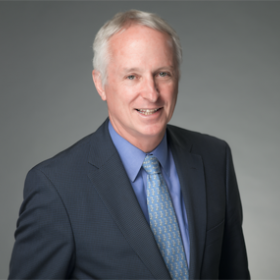
Munter Revisits Killing of bin Laden on Fifth Anniversary
Those are hours I'll never forget, said EWI CEO and President Cameron Munter on the fifth anniversary of the U.S. killing of Osama bin Laden on the popular David Webb Show on May 2, 2016.
Munter—the U.S. Ambassador to Pakistan during that successful raid—looked back on what he called a very important day and gave a play by play of the day the founder of the terrorist organization Al-Qaeda, who was responsible for the September 11, 2001 tragedy, was killed.
He said his main job as a diplomat was to deal with the aftermath of the events and to ensure the protection of U.S. citizens in the country. It was quite a challenge because there was history in Pakistan of reactions, by mobs, for example, Munter said. After the successful raid, we had to pull in a team of leaders at the embassy and made sure our consulates were notified and everyone was safe, he added.
Munter also shrugged off the wide speculation that the Pakistani government knew all along bin Laden was on their home soil. I think there was a question whether they were competent enough to know this ... I think it was hugely humiliating for them and they were very embarassed when (bin Laden) showed up under their nose. I think it infuriated a number of people in Pakistan in positions of leadership because it was so embarassing.
Munter said the killing of bin Laden was no doubt a huge blow to the capability of Al-Qaeda and that the world has made major progress against terrorists in the last few years.
But I think it's wrong for us to assume that those organizations are like a standard army and you defeat them in a standard way, he said. Even though Al-Qaeda was very much set back and America was made safer by the death of Osama bin Laden, we have to remain very watchful about the metastasising of threat as it shows itself around the world.
Munter also said there had to be a certain sense of common purpose among enough leaders to make the policies they decide on effective. He believed there was a striking amount of discord between people in the Middle East and North Africa region as well as the inability of the Gulf states to work with some of the Arab states there.
To listen to the entire interview, click here.

